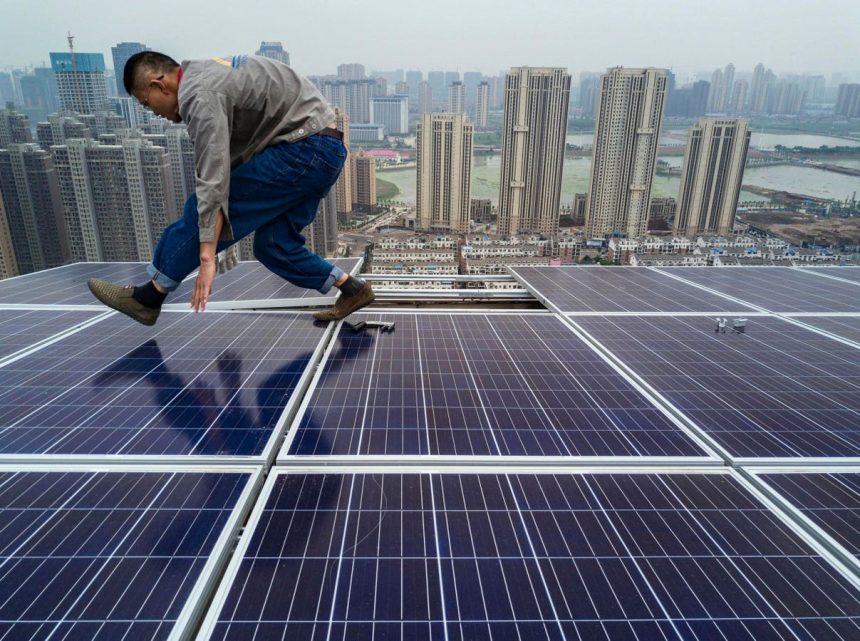The global energy sector is undergoing a profound transformation, driven by the urgent need to decarbonize, rapid technological advancements, and evolving geopolitical dynamics. Energy Intelligence’s 2025 Energy Outlook provides a glimpse into the near-term future of this complex landscape, highlighting the key trends shaping the strategies of governments, businesses, and consumers. The overarching theme is one of transition, a delicate balancing act between the imperative to reduce emissions and the persistent reliance on established energy sources. This necessitates a nuanced approach, acknowledging the continued role of fossil fuels while aggressively pursuing a cleaner energy future.
The global commitment to net-zero emissions is the primary driver of change, influencing policy decisions and investment flows. Over 80 countries have pledged to achieve net-zero targets, spurring a surge in investment directed toward renewable energy sources, electrification initiatives, and energy efficiency improvements. This policy-driven shift is reshaping traditional energy markets and fostering intense competition in the development and deployment of green technologies. Businesses are responding by aligning their strategies with government incentives and expanding their portfolios to encompass renewable power generation, green hydrogen production, and carbon capture technologies. Early adopters and innovators stand to gain a significant competitive advantage in this evolving market.
Despite the rapid growth of renewable energy sources like solar and wind, fossil fuels are projected to remain a significant component of the global energy mix through 2025. While renewables are expected to experience record growth rates, with solar capacity projected to double by 2025, fossil fuels will continue to satisfy the majority of global energy demand, particularly in the transportation and industrial sectors. This underscores the complexity of the energy transition – it’s not a simple substitution of one energy source for another, but rather a gradual rebalancing of the energy portfolio. The challenge lies in managing this transition effectively, ensuring energy security and affordability while simultaneously expanding low-carbon alternatives.
The increasing reliance on intermittent renewable energy sources necessitates advancements in energy storage and grid management. Energy Intelligence’s report highlights the growing importance of battery storage systems to balance the fluctuating supply and demand inherent in solar and wind power. Investments in smart grids and energy storage technologies are anticipated to surpass investments in new fossil fuel capacity in the coming years, creating significant market opportunities for battery manufacturers and grid technology providers. Utilities that embrace these advancements will be better equipped to manage the intermittency challenges associated with renewables and ensure a reliable power supply.
Emerging economies are playing a crucial role in shaping global energy demand. While energy demand in developed countries is slowing due to efficiency gains and the transition to renewables, emerging markets, particularly in India and Southeast Asia, are projected to drive the majority of new energy demand growth through 2025. These regions face the complex task of meeting their growing energy needs while simultaneously mitigating their carbon footprint. Energy companies seeking growth opportunities must focus on these emerging markets, offering scalable, affordable, and sustainable solutions that address both energy poverty and climate change concerns. Providing access to clean and reliable energy is crucial for economic development and improving living standards in these regions.
Geopolitical factors and supply chain resilience are increasingly influencing the energy landscape. Russia’s role in global energy trade continues to be a focal point, particularly in light of ongoing sanctions, while the United States and China are vying for leadership in critical mineral supplies and clean energy technologies. Supply chain disruptions, exacerbated by the COVID-19 pandemic and geopolitical conflicts, are prompting a reassessment of energy security strategies worldwide. Diversification of supply chains and the formation of strategic partnerships are becoming essential for energy companies to mitigate risks associated with geopolitical instability and material shortages, particularly within the rapidly expanding clean energy sector.
Technological innovation is a critical catalyst for the energy transition. From artificial intelligence to advanced materials science, technological advancements are accelerating the shift towards a decarbonized future. The report emphasizes the transformative potential of technologies such as green hydrogen production, carbon capture and storage (CCS), and next-generation nuclear power, which are poised to play key roles in decarbonizing hard-to-abate sectors like heavy industry and aviation. Strategic investment in these emerging technologies will determine the leaders of the future energy landscape. Early adoption and effective scaling of these technologies hold the potential to disrupt existing market structures and create new revenue streams. Innovation will be key to overcoming the technical and economic challenges associated with decarbonizing these sectors.
The energy landscape in 2025 will be characterized by a dynamic interplay of competing forces. While the momentum towards renewable energy and decarbonization is undeniable, the continued reliance on fossil fuels and the influence of geopolitical factors create a complex and evolving environment. Success in this dynamic landscape requires agility, innovation, and a willingness to adapt to change. Companies and policymakers must navigate this complex terrain with a focus on sustainability, resilience, and economic growth. The transition will require careful planning, strategic investment, and international cooperation to ensure a secure, affordable, and sustainable energy future for all. The path to 2025 and beyond is not without its challenges, but it is also rife with opportunities for those who can embrace change and drive innovation in the global energy sector.



